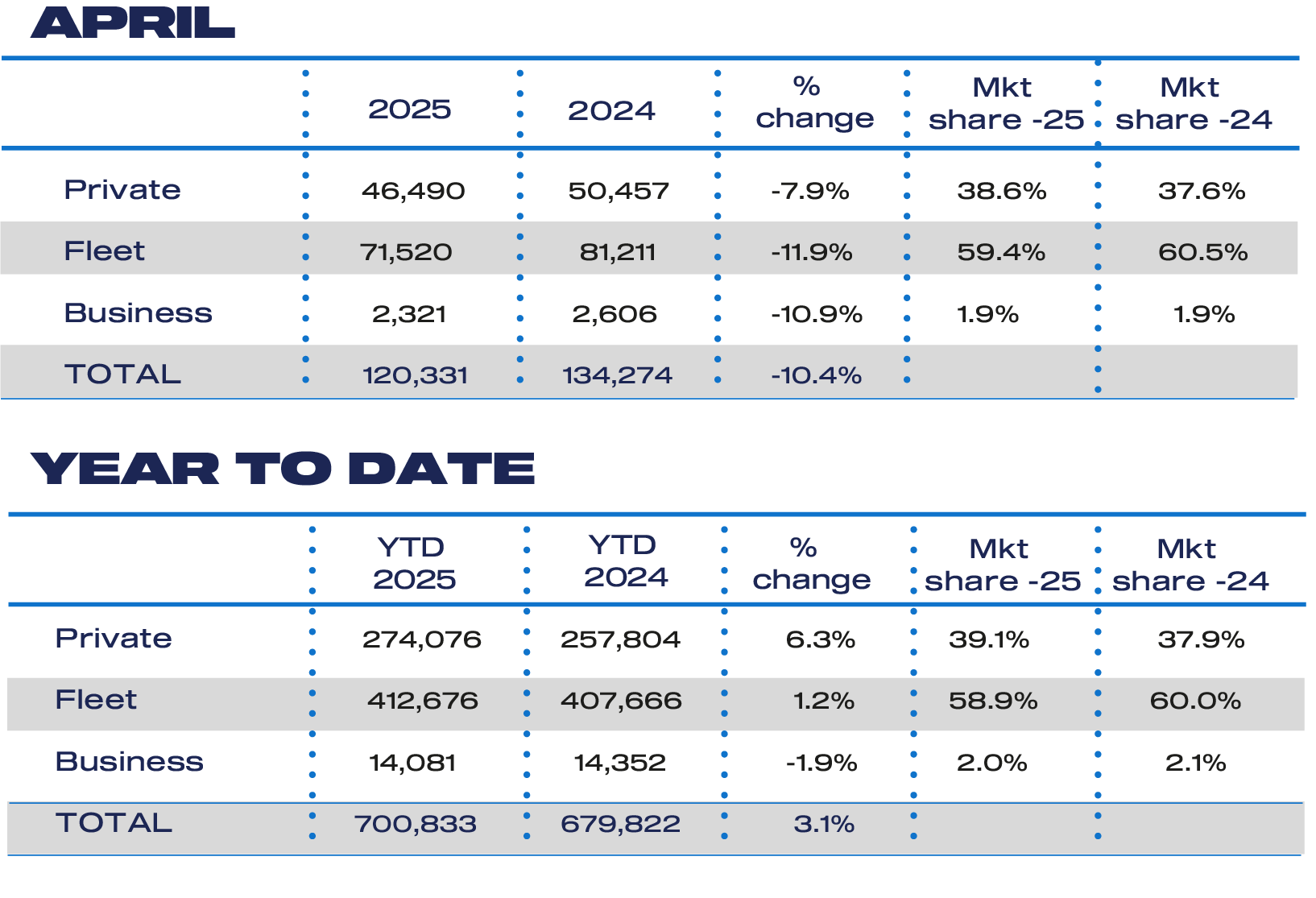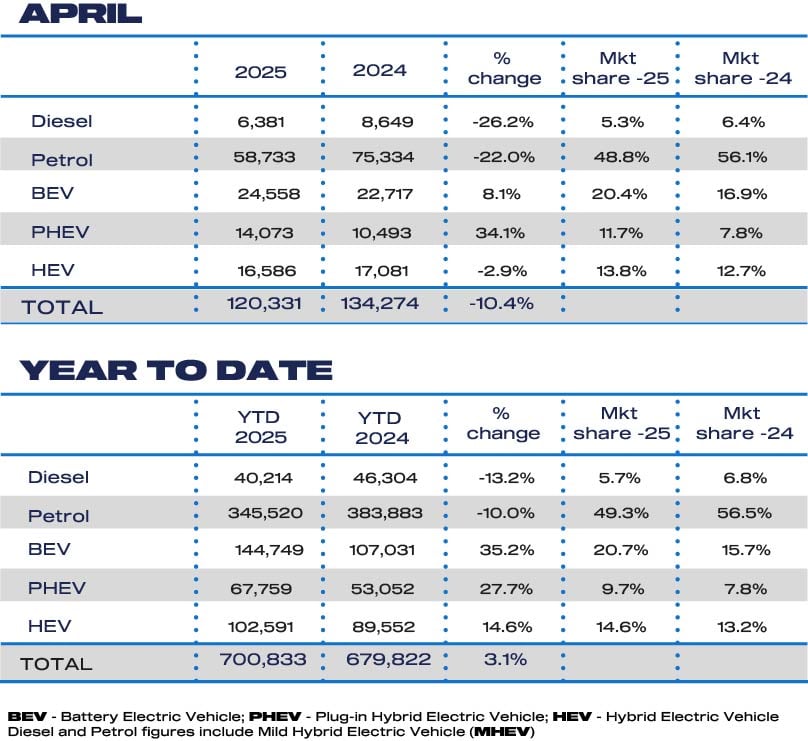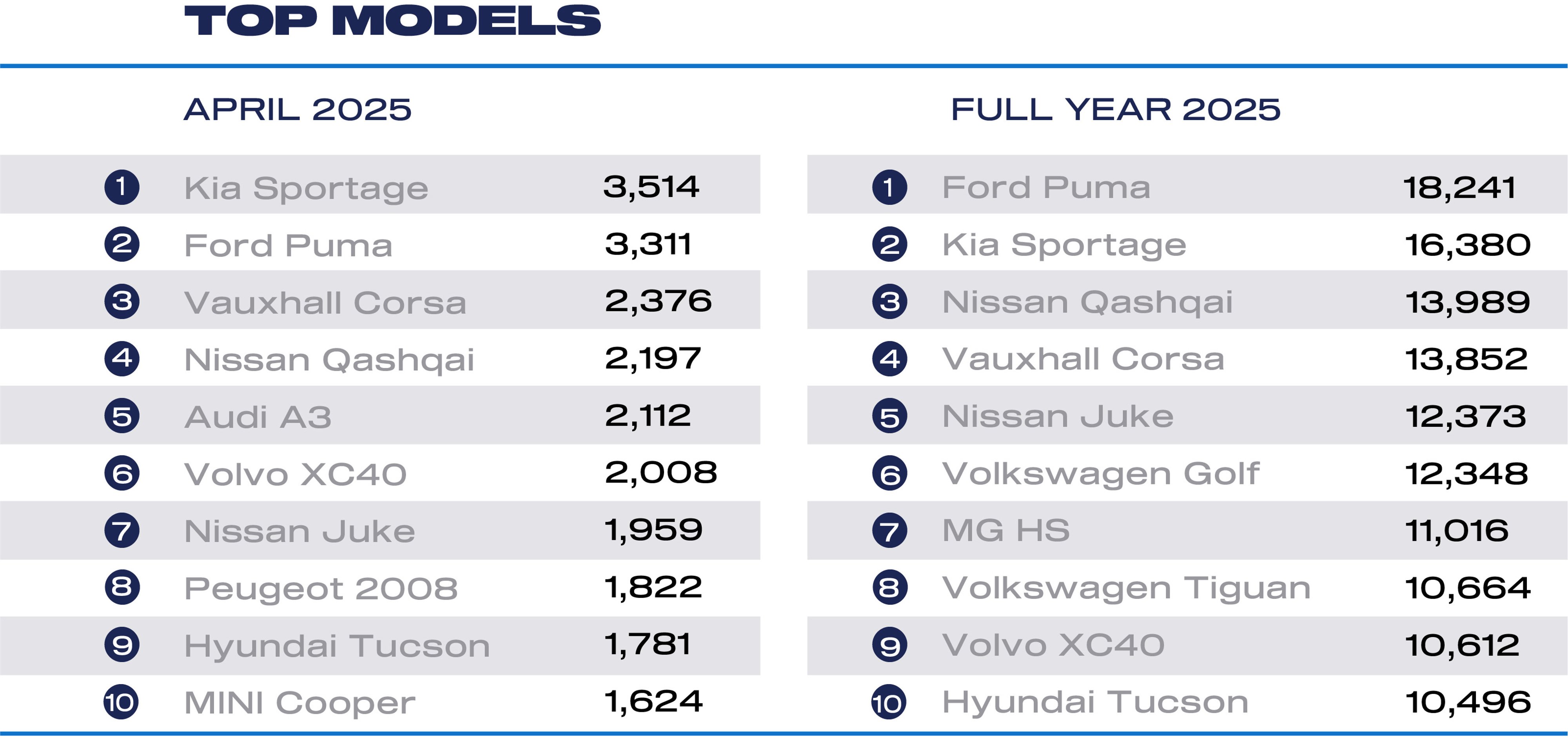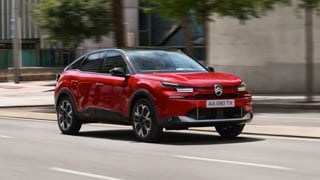The UK’s new car market suffered its sixth fall in the past seven months in April, reflecting a fragile economic backdrop and weakened consumer confidence.
The latest sales figures, from the Society of Motor Manufacturers and Traders (SMMT), show that fleet and business new car registrations were down 11.5%, compared to April 2024.
There were 74,171 new cars registered to fleet and business in the month, equating to a 61.6% market share.
Private sales, meanwhile, stood at 46,490 units, giving a combined new car market of 120,331 units – down 10.4% on April, last year.
Year-to-date fleet and business new car registrations, however, now stand at 426,757 units, which is an increase of just over 1% on the 422,018 new cars registered in the first four months of 2024.
That equates to a market share of 60.9%, with private sales reaching 274,076 so far this year, giving a total new car market of 700,833 units.
Year-to-date overall new car registrations are up 3.1%.
Maria Bengtsson, UK mobility leader at EY, said: “Fleet sales were remarkably resilient last year, so the fact they are now facing a more challenging outlook is concerning.”
However, she added: “With fleet being the less profitable channel for automakers, the persistence of sluggish retail sales presents a larger issue for the UK’s automotive industry.
“Helping consumers to feel informed, assured and compelled enough to make purchasing decisions will continue to be a critical priority for automakers, particularly given the subdued economic outlook and the impact that could have on consumer confidence.
“A key question is how big a role the Government can play in supporting manufacturers with these challenges, and whether Government incentives can provide a sustainable long-term solution.”

In what is traditionally a quieter month following the March plate change, volumes were also impacted by the late timing of Easter, resulting in fewer working days.
In addition, the SMMT says that the implementation of VED changes affecting all new cars, including the expensive car supplement which became applicable to many new EVs from April 1, pushed transactions into March as shrewd buyers got ahead of the tax increases.
SMMT chief executive, Mike Hawes, said: “April’s performance is disappointing but expected after March’s surge.”

In terms of powertrain performance, demand for hybrid electric vehicles (HEVs) fell by 2.9%, with petrol and diesel registrations down 22% and 26.2%, respectively.
Conversely, registrations of vehicles with a plug rose: plug-in hybrids (PHEVs) up 34.1% and battery electric vehicles (BEVs) increasing 8.1% to 24,558 units, taking more than a fifth (20.4%) of the market.
“Another month of growth for electric vehicle registrations is good news,” continued Hawes, “even if demand remains well below ambition.
“Recent Government adjustments to flexibilities and compliance within the ZEV mandate are welcome and an important first step in relieving some of the pressure on the market and manufacturers.
“However, EV uptake is still being heavily and unsustainably subsidised by the industry which is why a compelling package of measures from Government is essential if consumers are going to make the switch.”
Year-to-date, new BEV registrations are up 35.2% to push market share to 20.7%, with electric models now the second most popular powertrain after petrol but still below the 28% required under market regulations.
The latest SMMT market outlook has been revised up to 1.964 million units for 2025 but keeps 2026 expectations below the two-million mark, for what would be the seventh successive year.

Market share expectations for new BEV registrations, meanwhile, remain fairly constant with only a marginal revision downward from the January view, by 0.2 percentage points to 23.5% for this year, and by 0.3 percentage points to 28% next year, compared with the ZEV mandate targets of 28% and 33% respectively.
The SMMT says that the Government targets remain challenging and more must be done to stimulate demand.
Halving VAT on new EV purchases, scrapping or amending the VED expensive car supplement and equalising VAT paid on public charging to that levied at home, would all help boost the market and send a strong signal to any hesitant buyers that now is the time to go electric, argues the SMMT.
Jamie Hamilton, automotive partner and head of electric vehicles at Deloitte, said: “With ongoing concerns over price and charging infrastructure still commonplace, more needs to be done to support private buyers thinking about switching to electric.”
Compounding the slower market in April, Hamilton explained that UK automotive is also having to navigate the imposition of tariffs by the US.
“As tariffs on cars being sold to the US are implemented, the consensus view from industry analysts is that demand for new cars in the US is set to fall this year,” he said.
“This is likely to have a material impact on UK car production, with the US a key market for UK automotive companies.”
On top of this, Deloitte’s recent Q1 chief financial officer survey highlighted that businesses were becoming more defensive, with a greater focus on cost control in light of geopolitics being rated as the top risk to businesses.
“With fleet sales continuing to drive growth in the sector, any pull back on investment could slow down the ability of fleet managers to replenish their stock of vehicles,” Hamilton added.
“From a private buyer’s perspective, there will be concerns that a flattening of consumer confidence could mean some consumers think twice before making a large purchase.
“However, there are positive signs in the UK economy, including real wage growth, which may prove encouraging for consumers considering car purchases.”

Jon Lawes, MD at Novuna Vehicle Solutions, believes that the next few months will be “critical” for the UK motor industry as it grapples with the impact of sweeping tariffs imposed by the US administration and fears over price hikes and disrupted supply chains.
“This injects a level of volatility into market, which the industry could do without,” he said.
“Affordability remains the key to EV adoption and any threat to that, risks stalling hard-won progress. As economic pressures mount, ensuring cost stability and policy consistency will be vital.
“The leasing sector, instrumental in the UK's electrification journey, must remain agile to support businesses and drivers through a period of geopolitical uncertainty.”
Susan Wells, director of EV and solar at Hive, added: “Affordability still remains one of the biggest barriers to EV uptake and policymakers must ensure they are taking every step to encourage more drivers to make the transition.
“This includes additional funding to support the rapid expansion of the UK’s charging network and reducing VAT on public charging costs.”























Login to comment
Comments
No comments have been made yet.